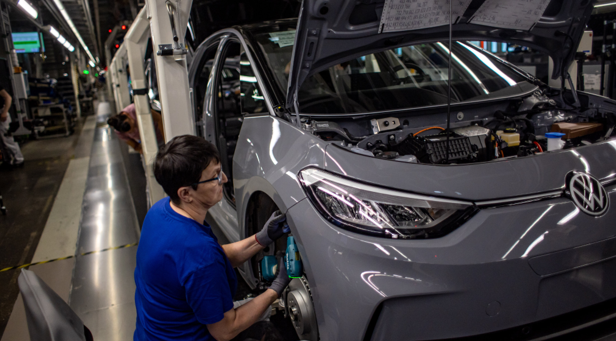Volkswagen is facing significant challenges as it attempts to regain its footing in the competitive Chinese automotive market. After being overtaken by China’s BYD as the nation’s leading carmaker, Volkswagen projects that it will take until 2026 to start recovering its lost market share. This outlook casts a shadow over critical investor meetings in Beijing this week.
Investor Skepticism and Leadership Changes
Investor confidence in Volkswagen has been shaken, and doubts persist about the company’s ability to reverse its negative trend. UBS analyst Patrick Hummel expressed skepticism, questioning whether Volkswagen can convince the market that its fortunes will improve. The company’s struggles have been exacerbated by delays in model releases and software issues, leading to the replacement of former CEO Herbert Diess with Oliver Blume, the head of Porsche, in 2022.
Blume has since initiated new partnerships in China, notably with local electric vehicle (EV) maker XPeng, and embarked on a comprehensive overhaul to enhance returns at Volkswagen’s struggling VW brand. Investors are hoping for renewed optimism from Blume during Volkswagen’s Capital Markets Day on April 24, dubbed China Day, followed by the Beijing auto show.
However, thus far, the market remains unconvinced. Volkswagen’s stock has declined by about 13% since Blume assumed leadership, while the share price of rival Stellantis, which has been quicker to introduce affordable EV models, has nearly doubled in the same period.
Broader Challenges for German Carmakers
Volkswagen is not alone in grappling with the rise of China’s domestic auto industry. Other German carmakers, including BMW and Mercedes-Benz, have also seen their market share diminish, especially among electric models. Companies like BYD and Nio have surged ahead by offering competitively priced vehicles equipped with the latest technological features. However, Volkswagen’s difficulties are particularly pronounced. Profitability at its joint ventures in China has been on the decline since 2015, currently standing at roughly half of what it was then, according to Bernstein analysis.
Financial Performance and Future Outlook
In 2023, Volkswagen reported an operating profit of €2.6 billion (R53.46 billion) from its Chinese ventures but expects this figure to drop to as little as €1.5 billion (R30.55 billion) this year. Analysts like Pal Skirta from B Metzler Seel Sohn & Co. warn that time is running short for Volkswagen to turn things around. The company’s lack of affordable EVs, compared to Chinese competitors and other European brands, may continue to weigh on its valuation in the coming quarters.
The Need for Strategic Adjustments
Volkswagen’s predicament highlights the broader challenges faced by traditional carmakers in adapting to the rapidly evolving automotive landscape. To remain competitive, Volkswagen must accelerate its efforts in developing and marketing affordable EVs. Strengthening partnerships with local manufacturers and leveraging advanced technology will be crucial steps in this direction.
In summary, Volkswagen’s struggle to regain market share in China underscores the intense competition in the automotive industry and the pressing need for strategic innovation. Investors are looking to Oliver Blume for decisive action and a clear path forward. As the company navigates these challenges, its future success will hinge on its ability to adapt to market demands and technological advancements.





